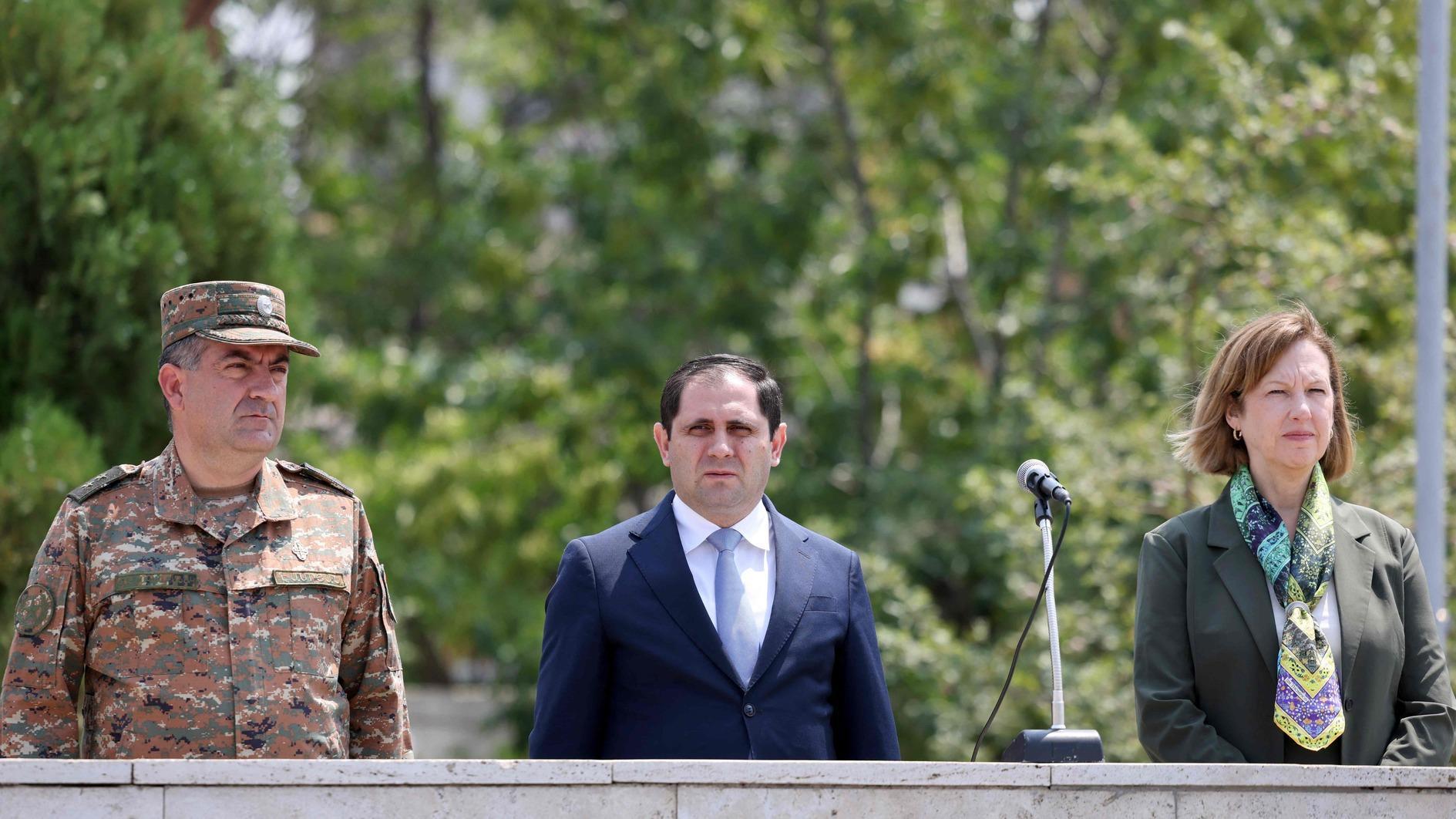
Armenia hosted joint military drills with U.S. troops, its defense ministry has said, the latest sign of Yerevan's rapprochement with the West amid a deepening rift with Russia.
The announcement highlights the shifting geopolitical situation in the Caucasus, where Moscow's historical ally Armenia is seeking to forge closer ties with the West and traditionally pro-Western Georgia faces accusations of drifting towards Russia.
The joint drills with servicemen from the U.S. Army Europe and Africa and the Kansas National Guard began in Armenia on Tuesday and will last until July 24, Yerevan's defense ministry said.
The exercises, dubbed Eagle Partner 2024, "will focus on stabilization tasks between conflicting parties during a peacekeeping mission,” it said earlier.
"The purpose of the exercise is to enhance the interoperability of units participating in international peacekeeping missions, exchange best practices in control and tactical communication, and improve the readiness of the Armenian unit."
Home to a permanent Russian military base, Armenia has effectively frozen its participation in the Moscow-led security alliance, the Collective Security Treaty Organization (CSTO).
Armenia's ties with Moscow soured after Yerevan accused Russian peacekeepers of “failing last year to prevent Azerbaijani forces from recapturing” the then-disputed Nagorno-Karabakh region, which had been controlled for three decades by Armenian separatists.
Armenia had historically sought protection from Russia but following the Azerbaijani victory it has turned increasingly to the United States and European Union.
The drills in Armenia came shortly after the U.S. Department of Defense said it would "indefinitely postpone" annual joint exercises in Yerevan's neighbor Georgia.
The move followed the U.S. Department of State's decision to conduct a "comprehensive review of the United States-Georgia bilateral relationship" over Tbilisi's perceived democratic backsliding and anti-Western rhetoric.